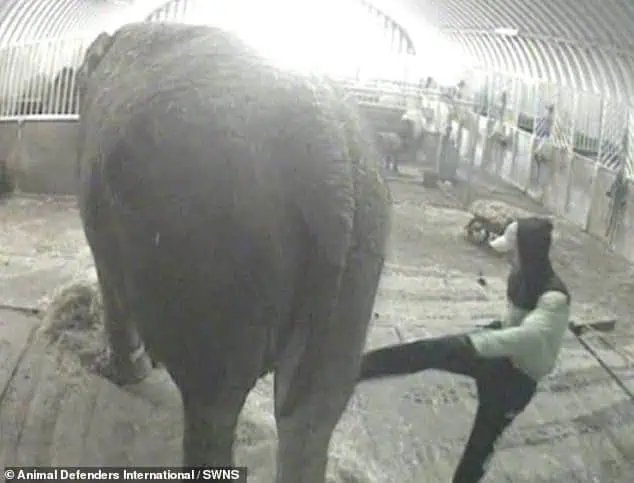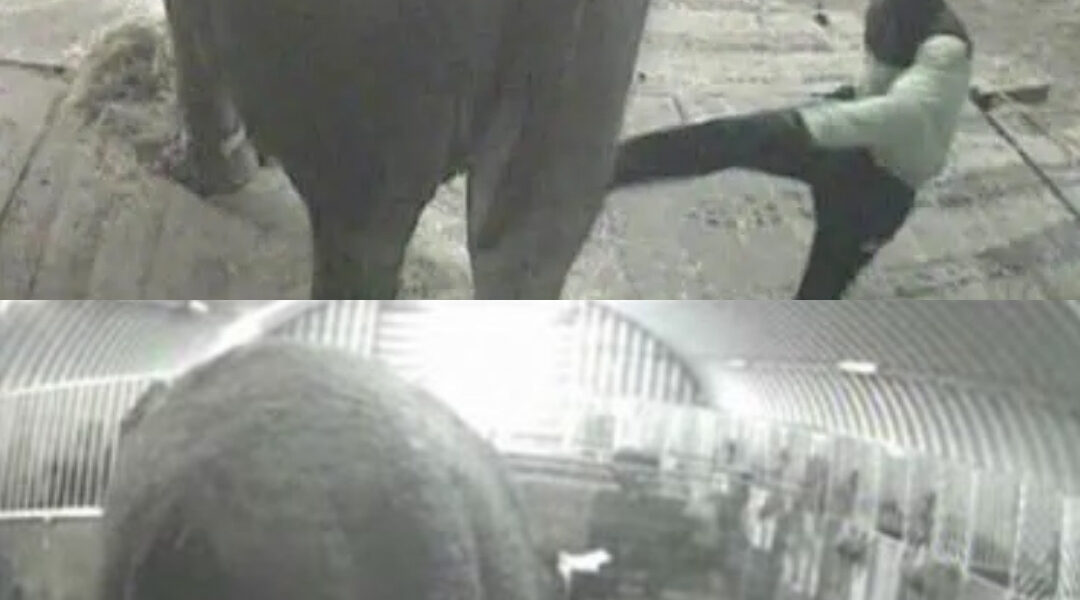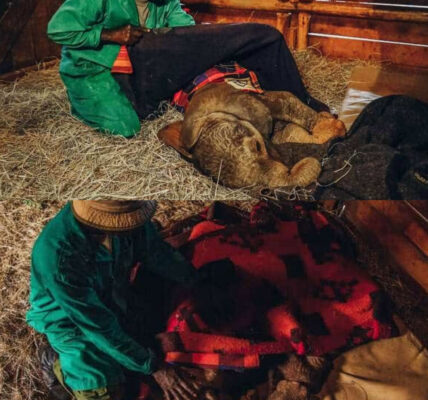For nearly half a century, Anne the elephant knew only chains, cold barns, and the sting of cruelty. Brought from Sri Lanka to Britain as a young calf, she spent decades performing in a traveling circus — her life reduced to tricks and confinement.

By the time she was in her sixties, her body was frail with arthritis, her spirit dimmed by loneliness.
Then, in 2011, everything changed.
Hidden cameras placed by animal rights activists captured shocking footage of Anne being beaten with a pitchfork, her legs shackled as she swayed in pain. The images outraged a nation. People who had never met her wept for her suffering.
Within days, an outpouring of compassion swept across the country.

Thousands of readers from the Daily Mail came together, donating more than £400,000 to give Anne a new life — one free of cages, cruelty, and chains.
Her rescuers brought her to Longleat Safari Park, where a £1.2 million custom-built sanctuary awaited her. Heated floors for her aching joints. Gentle showers to wash away years of grime and neglect.
Music, massages, and endless patience from a team of caretakers who had made her happiness their mission.

For the first time in decades, Anne could simply be.
Her keepers describe her as calm, curious, and quietly intelligent. She enjoys puzzles designed to challenge her mind and spends long afternoons in her private garden, wandering between trees, listening to birdsong. They’ve seen her eyes — once dull and wary — light up again.
But as Anne’s story spread, her life once more became the subject of fierce debate.
A petition with over 400,000 signatures, supported by animal welfare groups and actress Joanna Lumley, called for her to be moved to a sanctuary in France.
They say she is “Britain’s loneliest elephant” — that she deserves warmer weather and the companionship of other elephants in her final years.

Longleat’s team, however, believes differently. They insist that moving Anne now — at nearly seventy, with fragile bones and chronic arthritis — could kill her. Independent veterinarians have confirmed the risk, warning that a long journey or sudden changes in environment could be too much for her aging body to bear.
“Anne has stability here,” says Jon Merrington, Head of Safari. “She has routine, space, comfort, and people she trusts. To move her now would not be kindness — it would be cruelty.”
The debate continues — voices divided between freedom and safety, companionship and care. But one thing remains certain: Anne’s story has already changed lives.
She is no longer a nameless circus act, no longer a creature of suffering. She is a symbol — a reminder that compassion can heal even the deepest wounds, that kindness, once awakened, can move nations.
Each morning, as the sun rises over Longleat, Anne steps out of her barn and lifts her trunk toward the light. It’s a simple gesture, but one that speaks volumes — of endurance, of grace, and of quiet joy reclaimed.
She may never walk beside other elephants again, but she walks now in peace — and that, perhaps, is the truest freedom of all.




